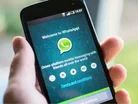Facebook buys WhatsApp for US$ 19bn

In a historic social media deal, Facebook has purchased texting service Whatsapp for US$ 19 billion. Upfront, Facebook will pay US$4 billion in cash and US$12 billion in stock. The remaining $3billion will go to the founders and staff as long as they remain employed by Facebook for four years from the acquisition date.
WhatsApp is a relatively young company (only five years old) but has an impressive 450 million users, and they are adding 1 million users every day. As far as apps go, it’s pretty basic – instead of sending text messages through traditional channels, this service sends them over mobile broadband, meaning there are no texting fees. The first year is free for users, and US$1 dollar the second year. According to OnDevice Research, it’s the most popular messaging apps on smartphones; twice as many texts are sent through WhatsApp as through traditional texts.
Read related articles in Business Review Australia:
- Facebook celebrates 10th anniversary
- Should your business use Facebook, Twitter or both?
- A formula for tracking social marketing success
Many were blown away by huge sum with which Facebook was willing to part to acquire the company; others weren’t so surprised, and some even think Whatsapp is worth more. When Facebook purchased Instagram for US$1 billion in 2012, it paid roughly US$30 a user. WhatsApp was purchased at US$42 a user, which is far below what Twitter (US$140), Facebook ($123) and even Snapchat ($50) trade at per user.
There are several reasons for why Facebook bought WhatsApp. Facebook had mentioned on its 10th birthday that they would be rolling out several new apps in the near future (though no one expected that to mean buying existing apps). WhatsApp, because of the way it sends messages, allows people from all over the world to be in contact instantly. I use WhatsApp to keep in touch with my friends in Britain, and I probably would pay more than the US$1 for the ability to be in touch with my far-flung comrades. Mark Zuckerberg’s dream from the beginning was to connect the world, and WhatsApp allows Facebook to be one step closer to that goal.
Facebook is also looking to grow in countries like Europe, India, and Latin America, countries where WhatsApp already has a stronghold. WhatsApp users send 19 billion messages a day, and 70 percent of users are active every day, compared to Facebook’s 62 percent. And like with Instagram, buying WhatsApp has allowed Facebook to convert what could have been a rival into an ally.
Both Mark Zuckerberg and WhatsApp’s CEO, Jan Koum, have made it clear that the goals of the company will remain the same. Koum has a distaste for advertising, and has made it clear no ads will interrupt communication on WhatsApp. He will join Facebook’s Board of Directors, but nothing else will change.
Update, 2/25: Mark Zuckerberg, in a question-and-answer session at the yearly Mobile World Congress meeting in Barcelona, has said that the $19 billion selling price of WhatsApp was cheap for its potential power to connect over a billion people.
"The reality is that there are very few services that reach a billion people in the world. They're all incredibly valuable, much more valuable than [the $19bn pricetag]," Mr. Zuckerberg said.
Image credit: Twin Design / Shutterstock.com
- Meet Sriram Krishnan, the tech exec advising Musk on TwitterLeadership & Strategy
- Meet the CEO: Scott Farquhar, co-founder AtlassianLeadership & Strategy
- End of an era – Sandberg leaves Meta COO role after 14 yearsLeadership & Strategy
- Twitter timeline – how Musk pulled off a hostile takeoverLeadership & Strategy



